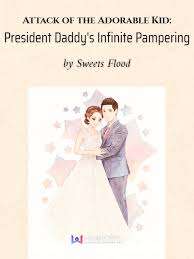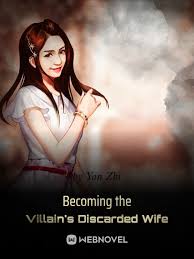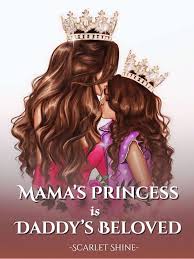The Story in 3 Sentences
On the night of her coming-of-age ceremony, Nan Zhi is betrayed by those closest to her, tricked into a compromising situation that leaves her pregnant and alone .
Four years later, she returns with her brilliant and mischievous son Xiao Yi, only to cross paths again with Mu Sihan—the powerful, cold-hearted man who unknowingly fathered her child and now demands answers .
What begins as a clash of pride and suspicion slowly unfolds into a story of reluctant protection, rediscovered trust, and a love forged through the innocence of a child who refuses to let his parents stay apart .
Why It Stands Out
1. The Unapologetic Charm of the Mini Matchmaker
Few webnovels weaponize childhood innocence as effectively as this one does through Xiao Yi, whose water-gun ambushes, sharp wit, and relentless scheming to unite his parents inject both humor and heart into a genre often weighed down by melodrama. His presence isn’t just cute—it’s catalytic, forcing emotional breakthroughs that adult pride would otherwise stall for hundreds of chapters.
2. From Trauma to Tenderness Without Sugarcoating
While many romance novels rush past the aftermath of betrayal, this story lingers in Nan Zhi’s vulnerability—her fear, her resilience, her refusal to be defined by victimhood. The narrative doesn’t erase her trauma but allows her healing to unfold alongside Mu Sihan’s gradual shift from domineering suspicion to devoted protector, making their eventual bond feel earned rather than convenient.
3. A Billionaire Who Evolves Beyond the Trope
Mu Sihan starts as the archetypal cold, controlling male lead, but the novel subtly dismantles his arrogance through repeated confrontations with his son’s logic and Nan Zhi’s quiet strength. His journey isn’t just about claiming a woman—it’s about learning humility, responsibility, and what true power looks like when it’s used to shelter rather than dominate.
Characters That Leave a Mark
There’s Bo Shaoxiu – Nan Zhi’s former fiancé whose polished charm masks entitlement, representing the life she was expected to accept before everything changed .
You’ll meet Xia Yanran, who stands by Nan Zhi with unwavering loyalty and whose own emotional arc with her brother Junyuan adds layers of familial warmth and medical drama to the story .
And Xiao Yi? They’re the one who crashes into every tense standoff with a water gun and a perfectly timed “Daddy, stop being weird!”—a child so clever, affectionate, and strategically adorable that he becomes the emotional compass of the entire narrative .
The Flaws Fans Debate
Some readers criticize the early chapters for relying heavily on non-consensual tropes and emotionally coercive behavior from the male lead, which can overshadow the romance for those sensitive to power imbalances .
The pacing occasionally drags due to repetitive misunderstandings and extended subplots involving secondary characters, leading to complaints about filler content in a story already spanning over 2,600 chapters .
A portion of the fanbase finds Nan Zhi’s initial passivity frustrating, arguing that her slow assertiveness undermines her otherwise resilient portrayal, especially in contrast to her sharp-tongued son .
Must-Experience Arcs
Ch. 1–50: The Night That Changed Everything – Nan Zhi’s coming-of-age celebration turns into a nightmare of betrayal and violation, setting the foundation for her exile and eventual return with a secret that will upend the life of the nation’s most powerful man .
Ch. 300–350: Father and Son Reunited – After Xiao Yi’s identity is confirmed, Mu Sihan grapples with fatherhood while navigating political threats and his growing obsession with Nan Zhi, culminating in intense confrontations that blend action, emotion, and the child’s hilarious interventions .
Ch. 2400–2612: Crown of Love – With Mu Sihan revealed as a foreign prince, the final chapters escalate into royal drama, public declarations, and a wedding that cements not just a marriage but a new legacy built on forgiveness, partnership, and the unbreakable bond of their unconventional family .
Killer Quotes
“Woman, do you know what’s the result of stealing my seed? From now on, you have to let me kiss and pamper you everyday.”
“Don’t you dare die on me! I swear, if you make me regret jumping from that fucking moving ship—!”
“If you dare to do anything over the line, don’t blame me for being impolite.”
Cultural Impact
The novel has amassed over 16.8 million views on Webnovel, becoming a staple in the “adorable kid + billionaire daddy” subgenre that dominates urban romance platforms .
Xiao Yi’s water-gun entrance and his iconic line “Who is this wild man?” became a viral meme template across fan forums and social media, often used to mock overconfident male leads in other stories .
Reader communities frequently cite this novel as a gateway into Chinese webnovels for its addictive blend of family drama, romantic tension, and comedic relief, with over 2,600 user reviews praising its emotional payoff despite early pacing issues .
Final Verdict
Start Here If You Want:
A heart-fluttering mix of parental fluff and high-stakes romance where a child’s love bridges two broken adults.
A classic rags-to-riches emotional journey with satisfying character growth and dramatic reveals.
Endless chapters of pampering, protection, and possessive devotion wrapped in a completed story—no cliffhangers, just closure.
Study If You Love:
The evolution of the “cold male lead” archetype in modern Chinese webnovels and how child characters function as narrative devices to soften patriarchal tropes.
Explorations of female resilience in urban romance, where trauma isn’t erased but integrated into a heroine’s strength.
The cultural mechanics of wish-fulfillment storytelling, where infinite pampering becomes a metaphor for emotional security in an otherwise chaotic world.
Avoid If You Prefer:
Stories that avoid non-consensual beginnings or power-imbalanced romantic dynamics in their early development.
Tightly plotted narratives—this novel thrives on emotional repetition and extended subplots that may feel excessive to plot-driven readers.
Male leads who start as morally ambiguous; Mu Sihan’s redemption is gradual, and his early actions may alienate readers seeking immediate respect and consent.





